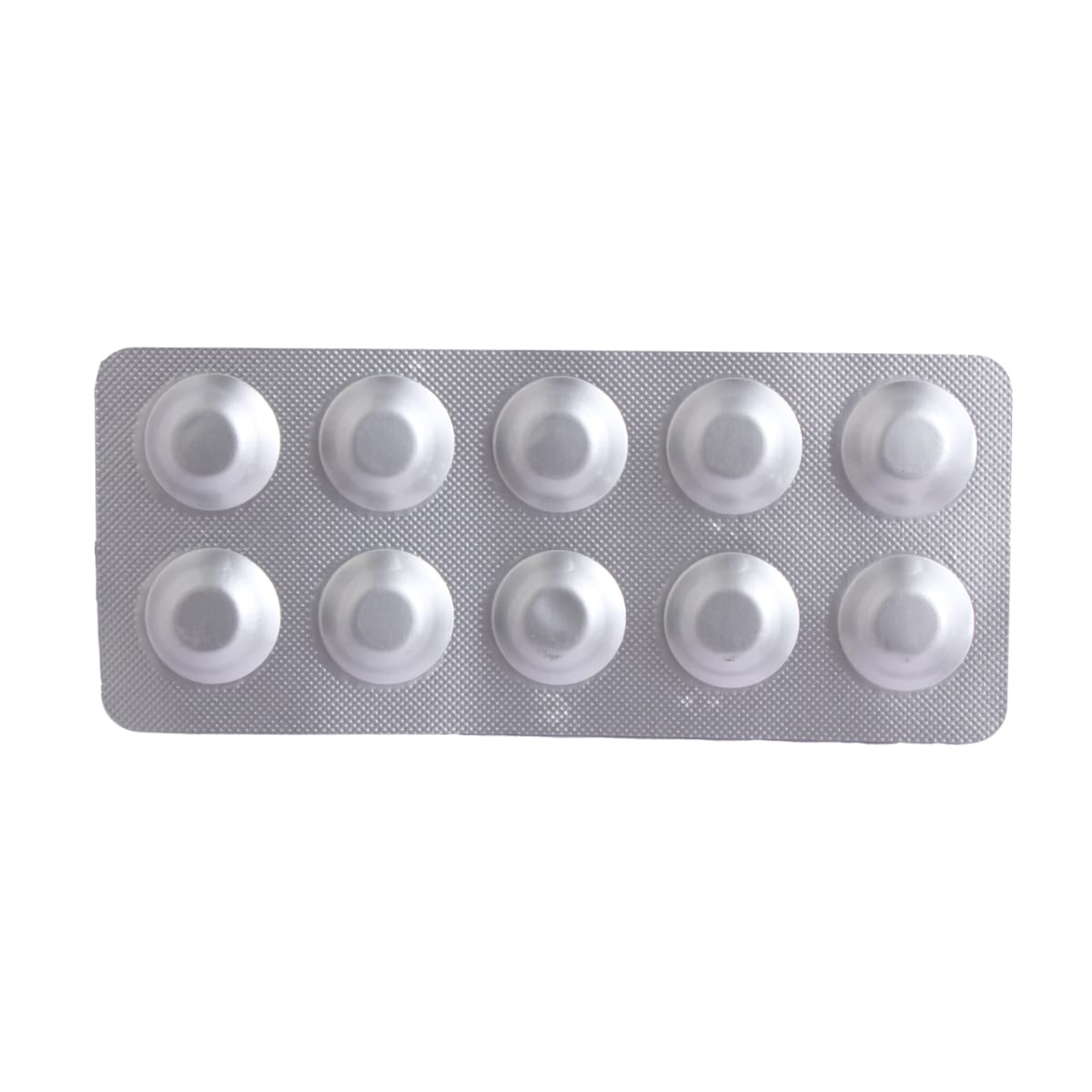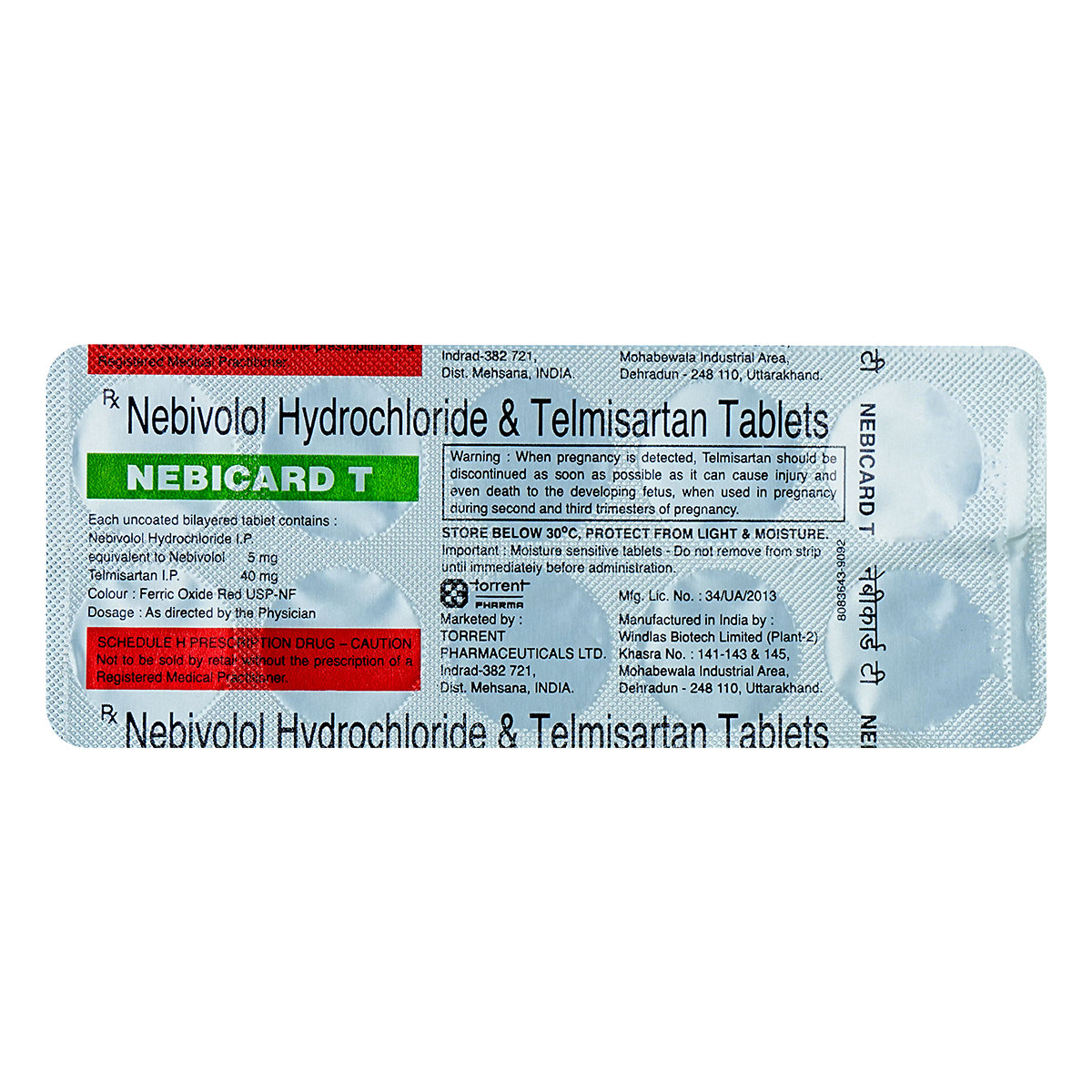Nebivolol+telmisartan
About Nebivolol+telmisartan
Nebivolol+telmisartan belongs to a class of medications called 'Anti hypertensives' primarily used to treat high blood pressure.Nebivolol+telmisartan is a combination of two drugs namely Nebivolol (Beta-blocker) & telmisartan (Angiotensin receptor blocker). Hypertension or high blood pressure is a chronic condition in which the force exerted by the blood against the artery wall is high. As a result, it leads to heart disease, irregular heartbeat, and other complications.
Nebivolol+telmisartan is a combination of two medicines: Nebivolol & telmisartan, which help lower raised blood pressure effectively. Nebivolol is a blood pressure-lowering drug that belongs to a class of beta blockers. it works by relaxing blood pressure & slowing heart rate to improve blood circulation and decrease blood pressure. Telmisartan is an angiotensin receptor blocker (ARB). It works by blocking the hormone angiotensin, thereby relaxing blood vessels. This allows the blood to flow more smoothly and the heart to pump more efficiently. Together, they are used to treat patients with hypertension who cant be treated with a single drug.
You can take Nebivolol+telmisartan with food or without food. It should be swallowed with a glass of water. Do not chew, bite or break it. Your doctor will advise you on how often you take your tablets based on your medical condition. In some cases, you may experience headache, nausea, dizziness, increased potassium level, Swollen legs, ankles, or feet, and low blood pressure. Most of these side effects of Nebivolol+telmisartan do not require medical attention and gradually resolve over time. However, if the side effects are persistent, reach out to your doctor.
Try not to stop taking this medicine on your own. Let your doctor know about this, as it may cause a rise in blood pressure and can increase the risk of getting heart disease and stroke. Inform your doctor if you are suffering from any kidney or liver or heart disease or are diabetic. If you are pregnant or breastfeeding, please tell your doctor so that the dosage of Nebivolol+telmisartan can be prescribed accordingly. It should not be given to children less than 12 years of age. Do not use Nebivolol+telmisartan if you have low blood pressure (hypotension), or cardiogenic shock (sudden stopping of blood flow to the heart). Please tell your doctor if you are taking any other medicines or are allergic to Nebivolol+telmisartan. Reducing the amount of table salt (sodium chloride) in your food often relieves the body's swelling. It would be best to have regular potassium and electrolytes level check-ups while taking Nebivolol+telmisartan to prevent any complications
Uses of Nebivolol+telmisartan
Medicinal Benefits
Nebivolol+telmisartan is primarily used to treat hypertension (high blood pressure). It is a combination of two medicines: Nebivolol & telmisartan which help lower raised blood pressure effectively. Nebivolol is a beta blocker that works specifically on the heart to reduce heart rate and lower blood pressure. Telmisartan is an angiotensin receptor blocker (ARB), that helps in relaxing our blood vessels by blocking the action of certain natural substances (angiotensin) in your body. This lowers your blood pressure and reduces your risk of having a future stroke, a heart attack, other heart problems, or kidney problems in the future. This medicine needs to be taken regularly to be effective.
Directions for Use
Storage
Side Effects of Nebivolol+telmisartan
- Headache
- Dizziness
- Weakness
- Upset stomach
- Cold feet /hands
- Nightmares
- Forgetfulness
- Increased potassium level in blood
- Slow heart rate
- Decreased blood pressure
Drug Warnings
Talk to your doctor if you are a patient of any of the following conditions or illnesses:
- Diabetes.
- Kidney disease or a kidney transplant.
- Liver disease.
- Heart trouble.
- Raised aldosterone levels (water and salt retention in the body)
- Imbalance of various blood minerals.
- Renal artery stenosis (narrowing of the blood vessels to one or Both kidneys).
- Low blood pressure (hypotension), likely to occur if you are dehydrated (excessive loss of body water) or have salt deficiency due to diuretic therapy, low salt diet, diarrhea, or vomiting.
- Elevated potassium levels in your blood.
- Poor blood circulation which makes the toes and fingers numb and pale (Raynaud’s disease).
- A type of chest pain due to spontaneously occurring heart cramp called Prinzmetal angina.
- Pain, tension, and weakness in the legs when walking which is relieved by rest (intermittent claudication).
- Recurrent and continuous obstruction of your airways such as chronic bronchitis.
Drug Interactions
Drug-Drug interaction: Care should be exercised when Nebivolol+telmisartan is administered in combination with heart rhythm medicine (Digitalis), Drugs used for mental issues (chlorpromazine), cold/flu (Phenylephrine, ephedrine), fever-reducing (Aspirin) & blood pressure-lowering drugs like chlorthalidone.
Drug-Food interaction: Nebivolol+telmisartan may interact with potassium-containing food items.
Drug-Disease interaction: Use with caution in patients with diabetes, Raynaud's disease (Poor blood circulation which makes the toes and fingers numb and pale), liver disease, kidney disease, heart failure & low blood pressure patients.
Drug-Drug Interactions Checker List:
Safety Advice

Alcohol
unsafeTaking $nsame with alcohol leads to harmful cases of low blood pressure thus strictly not recommended.

Pregnancy
unsafeStrictly not advised in pregnancy as harmful interactions have been reported.

Breast Feeding
cautionNo information is available on the effect of Nebivolol+telmisartan on breastfeeding mothers and its passage through milk, thus alternative drugs are preferred on doctor's consultation.

Driving
cautionDizziness, lightheadedness or fainting may happen with this medicine thus caution is to be taken while using this drug & driving afterwards.

Liver
cautionNo interaction has been reported. if experienced by a patient should consult a doctor immediately.

Kidney
cautionNo adverse interaction has been reported, yet doctor's consultation is advised.

Children
unsafeNot recommended in children with cases of hypertension as sufficient data is not available on safety & efficacy.
Habit Forming
Diet & Lifestyle Advise
- Keep your weight under control with BMI (Body Mass Index) 19.5-24.9.
- Do regular physical activity or exercise for at least 150 minutes per week, or about 30 minutes most days of the week. Doing this can help you to lower your raised blood pressure by about 5 mm of Hg.
- Opt for a diet rich in whole grains, fruits, veggies, and low-fat dairy products.
- Limit intake of sodium chloride (table salt) in your daily diet to 2300 mg per day or less than 1500 mg is ideal for most adults.
- If you are taking alcohol then only one serving for women and two servings for men is advisable.
- Quitting smoking is the best strategy to lower the risk of heart disease.
- Avoid chronic stress as it can raise your blood pressure. Try to enjoy and spent time with your loved ones to cope with stress and practice mindfulness techniques.
- Monitor your blood pressure daily and if there is too much fluctuation then immediately contact your doctor.
- Try to include heart-healthy omega-3 fatty acids containing food drinks in your daily diet. You can also use low-fat cooking oil like olive oil, soybean oil, canola oil, and coconut oil can help in lowering your elevated blood pressure.
Special Advise
- Quit smoking & drinking.
- strictly follow the treatment course as per doctors recommendation.
- Reduce your stress & avoid taking caffeine based products.
Patients Concern
Disease/Condition Glossary
Hypertension: It is a chronic condition when blood pressure is too high. This condition can lead to hardened arteries (blood vessels), decreasing the blood and oxygen flow to the heart. Blood pressure is the measurement of the force that our heart uses to pump blood to all parts of the body. When the blood pressure is elevated, the force the blood puts on the walls of the arteries is high and can lead to artery damage. Also, when the heart muscle has to pump blood against high blood pressure, it thickens and enlarges, just like any muscle does when it has to do more work Raised blood pressure can cause chest pain (angina) and heart attack (when blood supply to the heart is blocked). Hypertension develops slowly over the years and frequently does not cause any symptoms until something severe happens such as a heart attack, stroke, or heart failure. Fortunately, hypertension is easily diagnosed and treated to help prevent this from happening.
FAQs
Strictly not recommended as the drug is recommended for a long term disease called hypertension thus doctors consultation is required.
If a dose is missed take the missed dose as soon as possible and never take double dose at a time to make up for the missed dose.
This drug to be used in a diabetic patient unless your doctor recommends otherwise as the drug can mask the symptoms which depict higher levels of sugar in diabetic patient.
Taking too much Nebivolol+telmisartan may make you feel dizzy or like your heart is beating too fast or too slow. If you think that you’ve taken too much, call your doctor or go to the emergency hospital right away.
No, different studies carried out by health professionals on this drug & its long term effects have found its beneficial effects to be more (heart and associated blood vessels) as compared to few rare side effects that are found with this drugs use.





